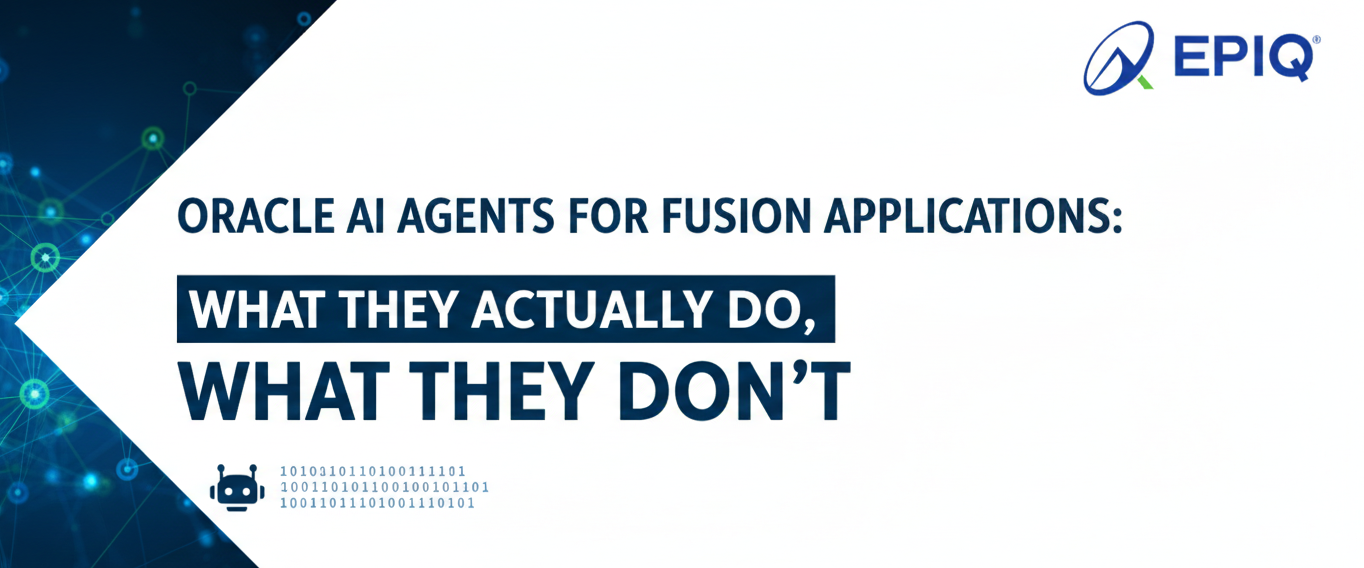In today’s fast-paced business world, choosing the right Enterprise Resource Planning (ERP) solution is a critical decision for professional services organizations. For entrepreneurs and business owners in the services industry, it’s vital to ensure that the financial management tools they select align with their company’s operational goals, streamline processes, and help with better decision-making.
The comparison between FinancialForce and NetSuite is frequently discussed by companies looking for ERP systems. Both platforms offer cloud-based solutions with distinct features and functionality. However, the core difference lies in their design, customization abilities, and scope of financial management. This blog will explore the essential distinctions between FinancialForce and NetSuite to help you choose the right platform for your organization.
Understanding ERP Solutions: FinancialForce vs. NetSuite
Both FinancialForce and NetSuite provide ERP systems with strong financial management tools, but each platform caters to a different audience based on business needs, scale, and integration capabilities.
NetSuite for Professional Services Organizations
NetSuite is a widely recognized ERP solution with a powerful heritage in accounting software. It offers an integrated business management solution that combines OpenAir, a leading Professional Services Automation (PSA) tool, with its ERP system. This makes it an excellent choice for companies in the professional services industry that need comprehensive financial management capabilities.
Key aspects of NetSuite include:
- Global Accounting: NetSuite is built to manage accounting across multiple subsidiaries and currencies. It offers real-time consolidation at both the parent company and subsidiary levels.
- Multiple Country Support: NetSuite is suitable for global organizations searching for a unified financial management solution, as it supports a variety of local accounting standards.
- Customizability: NetSuite’s modular approach allows users to add functionalities, such as CRM or supply chain management, as their business needs evolve.
- Cloud-Based SaaS: NetSuite is a true cloud-based solution, ensuring that all customers are always on the latest version without the need for manual updates.
FinancialForce
FinancialForce, founded in 2009 with backing from Salesforce, is a cloud-based ERP solution that focuses on combining financial management and professional services automation. Built on Salesforce’s Force.com platform, it offers integration with Salesforce’s CRM, making it a great choice for companies heavily invested in Salesforce’s ecosystem.
Key aspects of FinancialForce include:
- Single-Ledger Design: FinancialForce’s single-ledger system offers real-time financial tracking and ensures data consistency across the platform.
- Salesforce Integration: FinancialForce’s close integration with Salesforce allows for seamless data exchange between sales and financial departments.
- User Interface: FinancialForce provides a user-friendly interface with dashboards and analytics tools for tracking financial performance.
Key Differences Between FinancialForce and NetSuite
Now that we’ve introduced both systems, let’s dive deeper into their feature sets and compare them head-to-head in different categories to better understand their strengths and limitations.
Financial Management and Accounting Features
NetSuite:
NetSuite’s financial management system is robust and designed for companies that need advanced accounting capabilities. It includes:
- Global Accounting: Handles multiple currencies, tax jurisdictions, and subsidiaries with ease.
- Automated Consolidation: NetSuite automates the process of consolidating financial reports for companies with multiple entities.
- Advanced Budgeting and Forecasting: Provides features to assist with department-level and company-wide planning, including real-time modeling and approval workflows.
FinancialForce:
FinancialForce’s accounting system is built to integrate closely with Salesforce, which can be beneficial for companies that already use Salesforce as their CRM solution. However, it lacks some of the more advanced features found in NetSuite:
- Single-Ledger System: FinancialForce offers real-time tracking with a single ledger design, but lacks the automated consolidation and advanced reporting features that NetSuite provides.
- Basic Financial Reporting: FinancialForce offers basic financial reporting tools but requires third-party applications or custom-built solutions for more complex reporting.
Customizability and Flexibility
NetSuite:
NetSuite’s platform is designed with flexibility in mind. It offers:
- Modular Approach: You can easily add or remove functionalities as your business grows. This ensures you only pay for the features you need.
- SuiteScript: NetSuite’s custom scripting language, SuiteScript, allows for deep customization, enabling developers to modify the system to meet unique business requirements.
FinancialForce:
FinancialForce offers limited customization compared to NetSuite:
- Apex Programming: Since FinancialForce is built on Salesforce’s proprietary language, Apex, customization requires specific development expertise. This can limit flexibility for users not already familiar with Salesforce.
- AppExchange Dependency: FinancialForce relies on third-party applications from Salesforce’s AppExchange for additional functionality, which can be limiting for businesses looking for out-of-the-box solutions.
Integration Capabilities
NetSuite:
NetSuite is built to be an all-in-one ERP system, providing features such as CRM, financial management, and supply chain management under one roof. If needed, NetSuite also allows for integration with other enterprise applications:
- Built for NetSuite: This is a network of certified applications that ensure compatibility and adherence to NetSuite’s best practices.
- No Additional Integration Required: NetSuite’s native modules eliminate the need for extensive integration work when expanding its capabilities.
FinancialForce:
FinancialForce’s integration capabilities are closely tied to Salesforce’s ecosystem:
- Salesforce CRM Integration: FinancialForce’s native integration with Salesforce CRM is one of its core strengths.
- Limited External Integration: However, for systems outside Salesforce’s platform (such as SAP or Oracle), integrating FinancialForce requires custom-built solutions, which can be time-consuming and expensive.
Global Capabilities and Scalability
NetSuite:
NetSuite is well-suited for global enterprises with its advanced multi-currency, multi-country support:
- OneWorld: NetSuite OneWorld offers comprehensive global financial management tools. It supports country-specific tax regulations, currencies, and reporting requirements, making it ideal for multinational corporations.
- Localized Compliance: NetSuite provides localization for different countries, ensuring that businesses stay compliant with regional laws and financial standards.
FinancialForce:
FinancialForce also provides support for multi-currency and multi-country setups, but to a more limited extent:
- Extensible Chart of Accounts: FinancialForce allows for some flexibility in chart of accounts and reporting, but it lacks the in-depth support for global operations that NetSuite provides.
Reporting and Analytics
NetSuite:
NetSuite provides a comprehensive suite of reporting tools that make it easy for businesses to gain insights into their financial health:
- Pre-Packaged Reports: NetSuite comes with a wide array of pre-built reports, including financial statements, revenue recognition reports, and more.
- Customizable Dashboards: Users can create custom dashboards to monitor key performance indicators (KPIs) in real-time.
FinancialForce:
FinancialForce offers basic reporting capabilities, but lacks the depth and breadth found in NetSuite:
- Basic Reporting: FinancialForce includes basic financial reporting tools, but advanced reports (such as P&L statements) require custom-built solutions or third-party tools like Salesforce’s analytics.
NetSuite’s Advantages Over FinancialForce
Although both platforms offer valuable features, NetSuite provides a broader, more versatile set of tools for professional services organizations. Here are the key benefits of choosing NetSuite over FinancialForce:
- Comprehensive Financial Management: NetSuite’s financial management capabilities go beyond what FinancialForce offers, providing businesses with the advanced tools they need to manage their finances across multiple entities, currencies, and regions. The automation features help businesses close their books faster, reduce errors, and improve the accuracy of their financial reports.
- Customization and Flexibility: NetSuite’s modular design and SuiteScript provide comprehensive customization, making it easier to tailor the platform to your company’s exact requirements. This flexibility ensures that you can adapt the system as your business evolves, without needing expensive third-party solutions.
- Global Capabilities: For multinational businesses, NetSuite OneWorld is a powerful solution that supports multiple currencies, languages, and tax laws. Its ability to handle complex global financials, including localized compliance and reporting, makes it an ideal choice for global organizations.
- Unified System: With NetSuite, all your business’s core functions from financial management to CRM and supply chain are integrated into one system. This eliminates the need for separate tools and reduces the complexity of managing your ERP environment.
Conclusion
Choosing the right ERP solution is a critical decision for any professional services organization. FinancialForce may be a good fit for businesses that already use Salesforce extensively and don’t require advanced financial capabilities. However, NetSuite offers a more robust, customizable, and scalable solution that can meet the needs of growing businesses, especially those operating globally.
For companies looking for an all-in-one ERP system with deep financial management capabilities, NetSuite clearly stands out as the better choice. Its extensive feature set, ease of integration, and global scalability make it an invaluable tool for businesses aiming to improve their financial performance and streamline operations.







